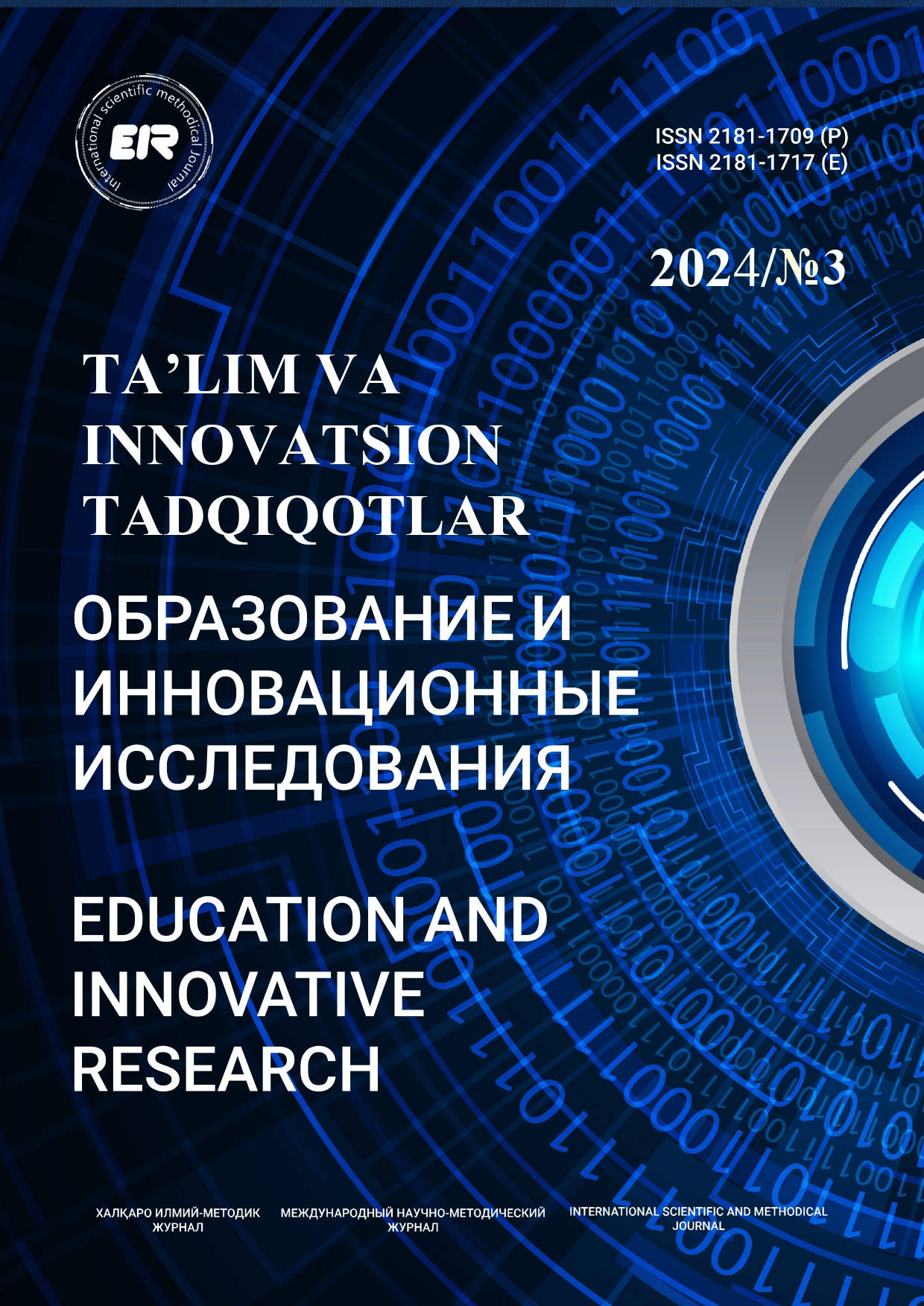DIRECTIONS FOR IMPROVING MENTAL COMPETENCE IN STUDENTS
Amonova Nargiza Mukhtarovna, Independent researcher, assistant of the Department of Biochemistry, Bukhara State Medical Institute
Keywords:
competence, assessment, information, creativity, intellectual potential, youth, knowledge and skills.Abstract
The article discusses a number of aspects of improving students’ mental competence. In particular, the types of mental competence and their stages of development, directions for improvement were discussed. Determining the competence of students is an extremely important issue in higher education institutions. Because the activity of students in the educational process is closely related to their competence. A person’s self-awareness and his attitude to values, the ability to choose these values, justify them and demonstrate the ability to evaluate them in terms of generally accepted social norms, as well as in terms of their social status, the behavior of a person, social behavior is important in determining the specific goals and social orientation of the character.
References
Blinov V.I. (2004). Практическая подготовка будущих учителей: прогматика, преспективы. Москва. ИОО. МОНРФ. 1-9 стр.
Bermus A.G. (2005). Проблемы и перспективы реализатсии компетентностного подхода в образовании. www.эидоc.ру. http://www.eidos.ru/journal/2005/0910-12.htm.
Olsson, Thomas; Martensson Katarina and Roxa, Torgny. (2010). Pedagogical competence.
Swedish, Division for Development of Teaching and Learning, Uppsala University, https://mp.uu. se/documents/432512/1163536/NSHU+Eng_inlaga%5B1%5D.pdf/353a7746-fd1a-678a-f0f9- 8cffe89036ad .
Сластенин В., Исаэв И., и дрг. (2006). Педагогика. Учебная пособия. 576 стр. 5. Елегина В.С., Похлебаэв С.М. (2012). Компетентносный подход к организации обучения студентов в педагогическим вузе. Фундаменталное исследование.. № 3.





